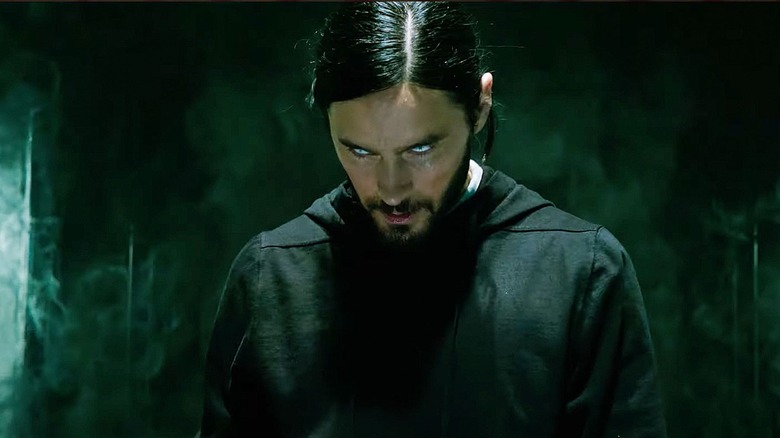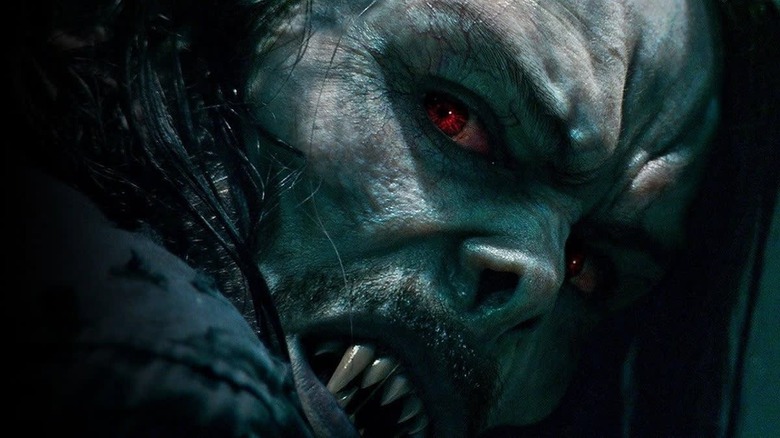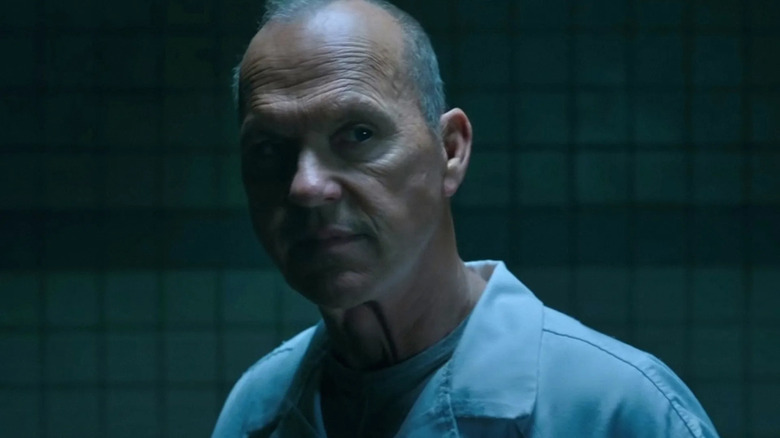Morbius Director Daniel Espinosa Talks Post-Credit Scenes And Tony Scott's The Hunger [Interview]
Daniel Espinosa is a director who likes what's real. Going back to his directorial debut, the Swedish crime picture "Snabba Cash" (presented by Martin Scorsese), he tends to go for real environments, car crashes, and stunts. Espinosa's first Hollywood action movie, "Safe House," emphasized practical effects. Even when the director made his sci-fi movie, "Life," he didn't want it to be a CG-fest.
Now, given all the CGI in "Morbius," Espinosa calls the new experience a bit surreal. It's his biggest movie to date, as well as hist most computer-generated. Even the titular monster's face is CGI, although Espinosa initially planned to go more old-school with the vampire. Recently, the director explained to us why they didn't go with practical effects for the titular creature, his love of Tony Scott's "The Hunger," and how those post-credits scenes were decided.
'Suddenly there was this big fight between them'
You're a director who likes practicality, the tangible. How was that transition with "Morbius" for you, where you have to rely a lot more on CG?
It's strange. I like to be in real worlds and that's how I build — even when we did "Life." We built the whole spaceship. So it was different to be in this kind of semi-realistic world, and also like, to be in this genre — that is, when you do these movies, you're doing one thing that is in the canon of a million other movies.
When I make "Life," I only make "Life." It starts, and then when it ends, it's over. "Easy Money," it starts, but then they make three movies. But when I made "Easy Money," I just made one movie. I think it begins and ends with the same thing. And so, to enter this kind of different world with the CGI and with all these ideas, that you make a movie that exists with people that already know a bunch of stuff, what it is you're making, — and you're making like an episode almost — it's different.
Weren't there once rumors that "Life" was some kind of setup for "Venom"? Was that bogus?
Yeah.
So that was never discussed?
No. I was a bit disappointed because for me, when I did the movie "Life," what I really liked about the script was that it had this kind of "Twilight Zone" end. I was always so disappointed when people go, oh, sequel. No, man, the world is horrible and dark and we're stuck in it, that's the notion of the picture.
When you are playing with canon and decisions connect to a broader universe, like those post credits, I imagine there are a lot of cooks in the kitchen when you are having those talks.
Oh yeah. It's a big discussion because it's so legal and there are so many things. And also, when we were making the movie, we also went through the part of Sony not being happy with Marvel. We were also halfway through [making it] and suddenly there was this big fight between them. You have to deal with that. So, you have these super multilayered ideas in this, but you have this on all these movies because they're big movies. That's how it is, I believe.
Was Keaton always the connection? How happy were you filming him?
To have him in front of your camera, being a character that he knows so well, it was so strange. He's also such a lovely human being, he's the sweetest actor I've ever worked with. He was super polite and interested, and for me it was just like, I have no idea why, why Michael Keaton seems so interested in me. I'm just an as*hole, you know?
[Laughs] No. Come on.
No, what that's how it feels. 'Cause you're there, you're like, I'm just a normal guy you met years ago worth jack sh*t. It's nice to meet people that are still interested in the craft, and what they do. I thought that stuff that he did on "Dopesick" was a wonderful performance.
Were those always the post credit scenes? Were others discussed?
No. The way that he arrives had to be changed after Spider-Man, because it showed you how he arrived. So, that was worked on, that Michael Keaton was going to meet Morbius. That was the fundamental idea that they always had.
'It starts looking a bit hokey'
Gotta say, did not expect references to "The Usual Suspects" and "The Hunger" in this movie.
[Laughs] Of course! Yes, exactly. I mean, Tony Scott's "The Hunger" is a very forgotten movie, but I think it's an artistic masterpiece and it's so radical in its expression. And it's not a great movie, but it's a great decision to do that and to make those kinds of images in the world. Nicely caught.
You seemed to be going for that Bowie look with Smith.
Of course. What I said to him, I said, "I want Milo to be a bit more like Sid Vicious. If you look at his home, it's like he's trying to block out the world there. And then when he turns healthy, he just wants to consume the world." Matt has always been a bit restrained in his performances. So, I just felt like, go man. Just live your life, be free.
Did you ever consider makeup for the vampires?
It started like that. I started with exactly that because I called [visual effects coordinator] Ryan [Doell] and he said, "you should do prosthetics." But the problem was that to get the Morbius look, it's not about negative space. The nose actually goes back and the mouth goes in, and then you build a double the size of Leto's face, and then you can shrink it, it starts looking a bit hokey. That's how it happened.
I had the visual effects' supervisor that I had, I had him because he was drafted by MIT because he's an expert in aerodynamics. I was trying to work out how Morbius would fly. When we were doing that, he said, "I also did Thanos. Thanos was two years ago and it's been developed more. So if you want, we can try that out." Then that became the decision.
Did you end up with a lot of deleted scenes with this movie?
Oh, I got some, I got some that can go around, yeah.
Any you miss, any scenes you want to share?
No. The thing is that all those often have to be finished. And that's the hard part of doing a visual effects-heavy [film] like this. You don't have the same power. You don't have the same power because visual effects need to be approved. So you approve step by step, piece by piece. I have dreams of things in my head that would be nice to have realized.
I wanted to ask about "Child 44," because [the composer] Jon said that was very challenging experience, that it had issues. What exactly went wrong there?
Yeah, it was super hard. I don't think I agreed with the decision of the dialect particularly. But also it's strange because that movie, if you don't think of the dialect, the movie is quite nice. It actually works quite well. It's about a man who's trying to save his marriage, and I got a divorce a week before I started making the movie. I was between a rock and a hard place, to be completely honest. For me, it was a big emotional crisis, the whole movie. And when I watch it, if you can watch it with forgiven eyes, it still has some qualities in moments that are very truthful. I'm still proud of it, even though it was the big disaster that it was.
"Morbius" is now playing theaters.


